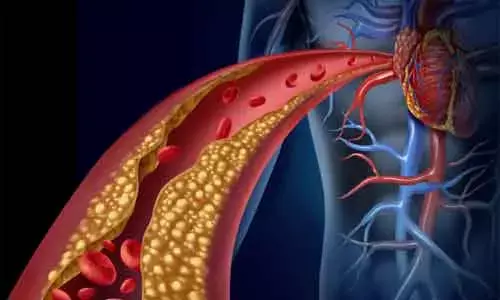- Home
- Medical news & Guidelines
- Anesthesiology
- Cardiology and CTVS
- Critical Care
- Dentistry
- Dermatology
- Diabetes and Endocrinology
- ENT
- Gastroenterology
- Medicine
- Nephrology
- Neurology
- Obstretics-Gynaecology
- Oncology
- Ophthalmology
- Orthopaedics
- Pediatrics-Neonatology
- Psychiatry
- Pulmonology
- Radiology
- Surgery
- Urology
- Laboratory Medicine
- Diet
- Nursing
- Paramedical
- Physiotherapy
- Health news
- Fact Check
- Bone Health Fact Check
- Brain Health Fact Check
- Cancer Related Fact Check
- Child Care Fact Check
- Dental and oral health fact check
- Diabetes and metabolic health fact check
- Diet and Nutrition Fact Check
- Eye and ENT Care Fact Check
- Fitness fact check
- Gut health fact check
- Heart health fact check
- Kidney health fact check
- Medical education fact check
- Men's health fact check
- Respiratory fact check
- Skin and hair care fact check
- Vaccine and Immunization fact check
- Women's health fact check
- AYUSH
- State News
- Andaman and Nicobar Islands
- Andhra Pradesh
- Arunachal Pradesh
- Assam
- Bihar
- Chandigarh
- Chattisgarh
- Dadra and Nagar Haveli
- Daman and Diu
- Delhi
- Goa
- Gujarat
- Haryana
- Himachal Pradesh
- Jammu & Kashmir
- Jharkhand
- Karnataka
- Kerala
- Ladakh
- Lakshadweep
- Madhya Pradesh
- Maharashtra
- Manipur
- Meghalaya
- Mizoram
- Nagaland
- Odisha
- Puducherry
- Punjab
- Rajasthan
- Sikkim
- Tamil Nadu
- Telangana
- Tripura
- Uttar Pradesh
- Uttrakhand
- West Bengal
- Medical Education
- Industry
Alirocumab may cause scleritis with uveal effusion in susceptible patients

Alirocumab has been linked to scleritis with uveal effusion in patient with autoimmune diseases according to a case study. In the literature alirocumab has not been reported to cause scleritis.
Alirocumab is a human monoclonal antibody that belongs to a novel class of drugs known as proprotein convertase subtilisin/kexin type 9 inhibitors that increase the expression of low-density lipoprotein receptor and decrease levels of low-density lipoprotein cholesterol . It is used in adults whose high cholesterol is not controlled by diet and statin treatment.
Alirocumab, a newer PCSK9 inhibitor used as a second-line treatment for adults with uncontrolled hypercholesterolemia, may trigger pathologic inflammation including scleritis in susceptible patients. A case report is published in Annals of Internal Medicine.
Clinicians at Columbia University Irving Medical Center, New York-Presbyterian Hospital report the case of a 63-year-old woman who had several weeks of increasing pain, redness, and loss of vision in her right eye that did not resolve with steroid treatment. The patient had a history of Hashimoto thyroiditis and Ménière disease and had been taking an oral statin for hypercholesterolemia, but started alirocumab treatment about 6 weeks before the eye symptoms began. Suspecting a rare reaction from the alirocumab, the clinicians discontinued the medication and treated the patient's scleritis with uveal effusion with prednisone. Within 1 week, the patient reported dramatic improvement in her ocular and systemic symptoms. By 2 months, all of her symptoms and findings had completely resolved. Alirocumab treatment was not resumed.
According to the authors, newer PCSK9 inhibitors will likely bring significant health benefits to many people; however, because they are monoclonal antibodies with immune system interactions, they may also trigger pathologic inflammation in a subset of susceptible patients. Physicians should be on the lookout for idiosyncratic inflammatory responses to these monoclonal antibodies and continue to take good histories to uncover possible links.
For further reference log on to:
Dr Kamal Kant Kohli-MBBS, DTCD- a chest specialist with more than 30 years of practice and a flair for writing clinical articles, Dr Kamal Kant Kohli joined Medical Dialogues as a Chief Editor of Medical News. Besides writing articles, as an editor, he proofreads and verifies all the medical content published on Medical Dialogues including those coming from journals, studies,medical conferences,guidelines etc. Email: drkohli@medicaldialogues.in. Contact no. 011-43720751


